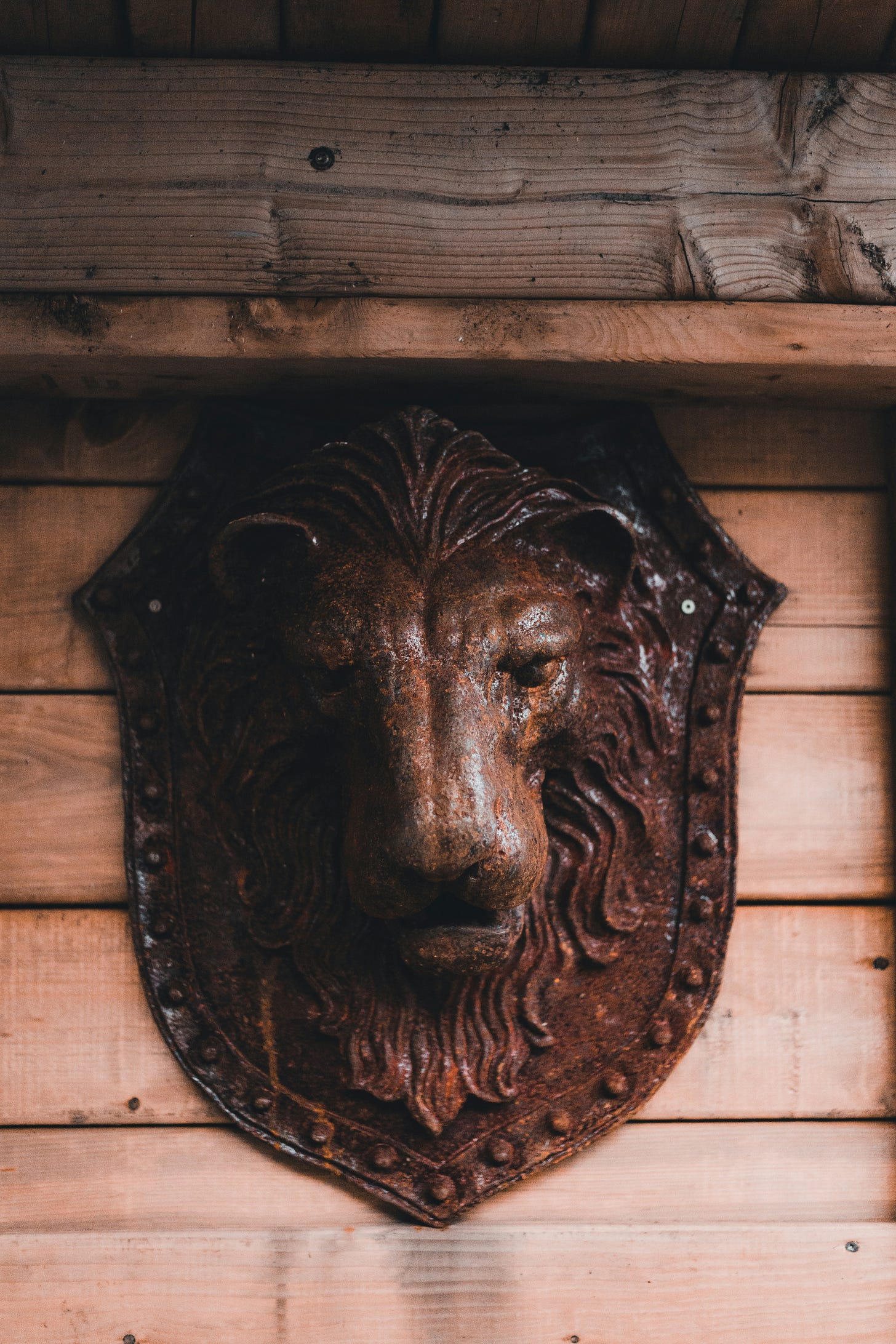Photo by Erik McLean
It's been said that there are 365 “Fear nots” in the Bible, one for each day of the year. Others claim that this number is smaller, more like 150. Either way, this is good news for people like me, who struggle with fear and anxiety.
The first “Fear not,” according to my research (flipping through my falling-apart ESV), is found in Genesis 15:1, when God speaks to Abram in a vision:
“Fear not, Abram, I am your shield; your reward shall be very great.”
If you're not familiar with the story of Abraham, God calls him, seemingly out of nowhere, in a time when the knowledge of God has grown dim and shadowy, to leave his home and “go to a land that I will show you.” Abram packs up his possessions, gathers his family (his wife and his nephew plus a bunch of servants), and leaves. He eventually settles in what will someday be the Promised Land.
Years later, his nephew, Lot, has gone to live near Sodom and Gomorrah and gets caught up in a conflict with some local kings, and Abram, with his armed men, rescues Lot. It is after this incident that God speaks these words to Abram:
“Fear not, Abram; I am your shield; your reward shall be very great.”
I wonder what fears in Abram's heart God was speaking to.
I wonder if God's “Do Not Fear” comes to Abram, in part, to bring healing to the fears of his past: fears having to do with battle he has just come through, with the long arduous journey he has undertaken, with the separation from family and culture that he has experienced.
I know that when I go through something traumatic, even if the outcome is good, I am haunted by residual imagery from the incident, by phobias, by “what-if-this-had-happened-instead” kinds of thoughts.
Perhaps God is opening Abram's eyes to see that He has been his protector all along; that he had nothing to fear, even when he was afraid; that he has nothing to fear in his future.
Abram responds to God by bringing up the persistent, troubling thing in his life: his grief over his inability to have a child.
~
I grew up in the 80s and 90s, during a time when youth pastors everywhere were quoting Jeremiah 29:11 at their kids:
“For I know the plans I have for you, declares the Lord, plans for welfare and not for evil, to give you a hope and a future.”
Like so many in my generation, I grew up to be a bit cynical about all this “God has a wonderful plan for your life” talk.
I hit 19... then 25...then 30...and the whole time I'm wondering, “when does this 'wonderful plan' kick in?”
At some point, I gave up and began to think things like “God hasn't chosen me” or “I'm not good enough.”
I wonder if this is a bit how Abram was feeling when God spoke to him that day. Not that I mean to compare myself to Abram, of course. (Abram is a hero of the faith, while my faith is more of the mustard seed variety.)
Still, there is a bit of heartache in Abram's response to God: “Oh Lord God, what will you give me, for I continue childless...? Behold, you have given me no offspring...”
God responded to Abram by promising him a son, and offspring as numerous as the stars in the heavens.
Abram believed God.
Last Sunday at church, the pastor paraphrased a line from the hymn “How Firm a Foundation:”
Sanctify to me my deepest distress.
The line has stayed with me this week, and it strikes me, in retrospect, as relevant to Abram's situation, and to mine, and to that of so many other believers.
God is at work in, through, around, and in spite of, our deepest distresses. This is why He says to Abram—and to us—do not fear.
Now, in my forties, after all my searching and wandering in wildernesses, I have come to believe—again--that God does have a wonderful plan for my life. And for yours.
It might involve some drama, some trials and tribulations, some years of sojourning. It may be that His plan for my life—like His plan for Abram's—has something to do with the future, with a generation yet to be born.
Abram's desire was for a son; God gave him a son, just as He promised. And descendants as numerous as the stars.
But God's plan for Abram—as we know—was so much more than his being a father in the earthly sense.
Abram—later renamed Abraham, meaning “father of a great multitude”-- was the father of my faith, and of yours, and of all who call upon the name of the Lord.
Like Abram, may we draw near to God this week and hear Him saying to us, “Fear not, I am your shield; your reward shall be very great.”




I love Jeremiah 29:11. However, as I continue reading in that passage, I find HIs plans for me. "Then you will call upon me and come and pray to me, and I will listen to you. You will seek me and find me when you seek me with all your heart." Thank you for your writing.
"Sanctify to me my deepest distress" - yes, that speaks to me too.